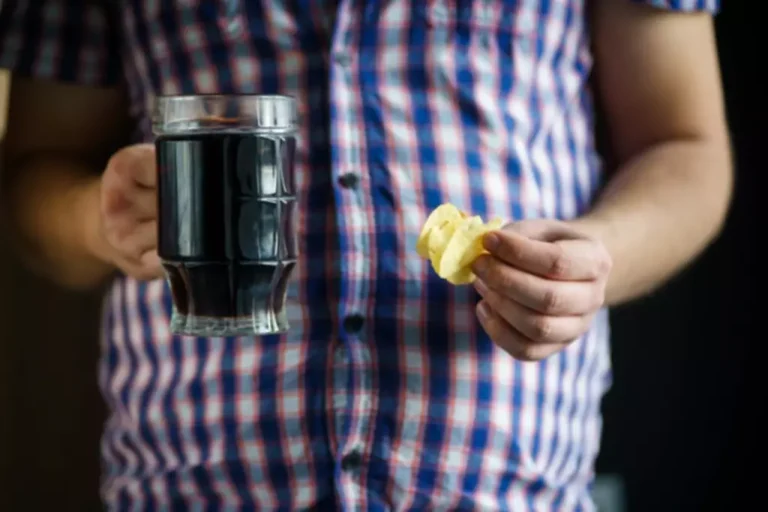
Your role is simply to remind them of commitments they made and offer small nudges in the right direction. While you can’t force a loved one to abandon their binge drinking habits, voicing your concerns and offering support in the right way may help motivate them to change their ways. In some cases, the people around you might continue to pressure you to drink.
Find healthier ways to manage social anxiety
Too much alcohol affects your speech, muscle coordination and vital centers of your brain. A heavy drinking binge may even cause a life-threatening coma or death. This is of particular concern when you’re taking certain medications that also depress the brain’s function. If your pattern of drinking results in repeated significant distress and problems functioning in your daily life, you likely have alcohol use disorder. However, even a mild disorder can escalate and lead to serious problems, so early treatment is important. Alcohol use disorder is a pattern of alcohol use that involves problems controlling your drinking, being preoccupied with alcohol or continuing to use alcohol even when it causes problems.

What is an Alcohol Use Disorder?

You may begin to binge drink more often, the days you abstain between sessions becoming fewer. “Because alcohol use and especially binge drinking can result in a range of both short-term and long-term consequences, moderation is something anyone who drinks should aim for,” Dr. Koob says. The National Institute on Alcohol Abuse and Alcoholism (NIAAA) defines binge drinking as drinking enough alcohol to raise one’s blood alcohol concentration (BAC) to 0.08% or above.
- You might arrive at a friend’s party in an upbeat and energized mood, but by the end of the night, you’re feeling sick and regretting your decisions.
- You might even want to vocalize when you’re done drinking.
- People who make more than $75,000 a year and are more educated are most likely to binge drink.
- About 17% of U.S. adults report binge drinking in the past year.
- The following advice is drawn from a prevention guide published by NIAAA that is targeted to parents and caregivers of 10- to 14-year-olds.
- Pregnant women who binge drink can affect their child’s physical and cognitive development.
Underage Drinking and Teen Alcohol Use
Maybe your loved one has a tendency to say insensitive things while intoxicated, or perhaps they routinely drink and drive. Whether you decide to set a hard limit or not, make a habit of following up every alcoholic beverage with a non-alcoholic one. Memory loss or fragmented memories of the previous night might leave you feeling uneasy or worried about your health.
Try to make those types of activities take a backseat to other hobbies. For example, they might decide to stick to one drink per occasion or no more than three drinks per week. When you’re drinking together, remind them of the limit they set for themselves. To help an underage drinker drop the habit, you’ll need to understand their motivations and be willing to converse with them in a nonjudgmental way.
Long-term effects and health risks of binge drinking
Some binge drinkers only drink once a week; others even less frequently. In fact, abstaining from alcohol between sessions of excessive alcohol consumption is a key characteristic of binge drinking. You may think that because you’re not physically dependent on alcohol and don’t have to drink every day that your drinking isn’t harmful. However, binge drinking can have serious consequences and any unhealthy patterns of alcohol use can lead to more serious problems. “It’s more socially acceptable for women to drink excessively today than it used to be,” he says. Binge drinking also increases the likelihood of unsafe sexual behavior and the risk of sexually transmitted infections and unintentional pregnancy.
Long-term effects of binge drinking
- Memory loss or fragmented memories of the previous night might leave you feeling uneasy or worried about your health.
- Instead of inviting your loved one out for drinks at a bar, invite them over to work on a crafting project or go out and see a movie.
- As there are many different kinds of malts, liquors and wines, it’s important to pay attention to the labels and serving sizes.
- The 2015 study results showed Americans were consuming about seven drinks during each episode of binge drinking.
Millions of Americans are affected by substance use disorders (SUDs). SUDs are chronic but treatable medical conditions that change the… If someone needs more help, the NIAAA Alcohol Treatment Navigator can help. This website provides information about the often-complicated process of choosing treatment for alcohol problems. Complete results of the 2015 study can be found in the American Journal of Preventive Medicine. According to Dr. Streem, the bottom line is that Americans need to drink less alcohol.

You have a hard time cutting yourself off once you start drinking. Perhaps you frequently get caught up in the feeling of euphoria that comes with being intoxicated. You feel compelled to keep drinking to maintain that high. You might start the night with the intention of drinking one or two beers. An hour or two later, you’re more intoxicated than you wanted to be. “These numbers can vary based on the person’s metabolism, size, and weight,” he says.
Teens who drink are also more likely to struggle with school, use other risky substances, or experience alcohol poisoning. If you’re a binge drinker, the first step to changing your drinking problem is to understand what factors drive your behavior. Depending on your age, binge drinking different factors may come into play, but some motivations are common among all age groups. Only about 10 percent of people who binge drink struggle with a dependence on alcohol.

People in farming communities are more likely to binge drink (consume alcohol at short-term risky levels) when compared with the general Australian population. Binge drinking is behavior that raises blood alcohol levels to 0.08%. That usually means four or more drinks within two hours for women and five or more drinks within two hours for men. Drinking alcohol three days in a row is not good for you, but it’s not necessarily considered binge drinking either.
